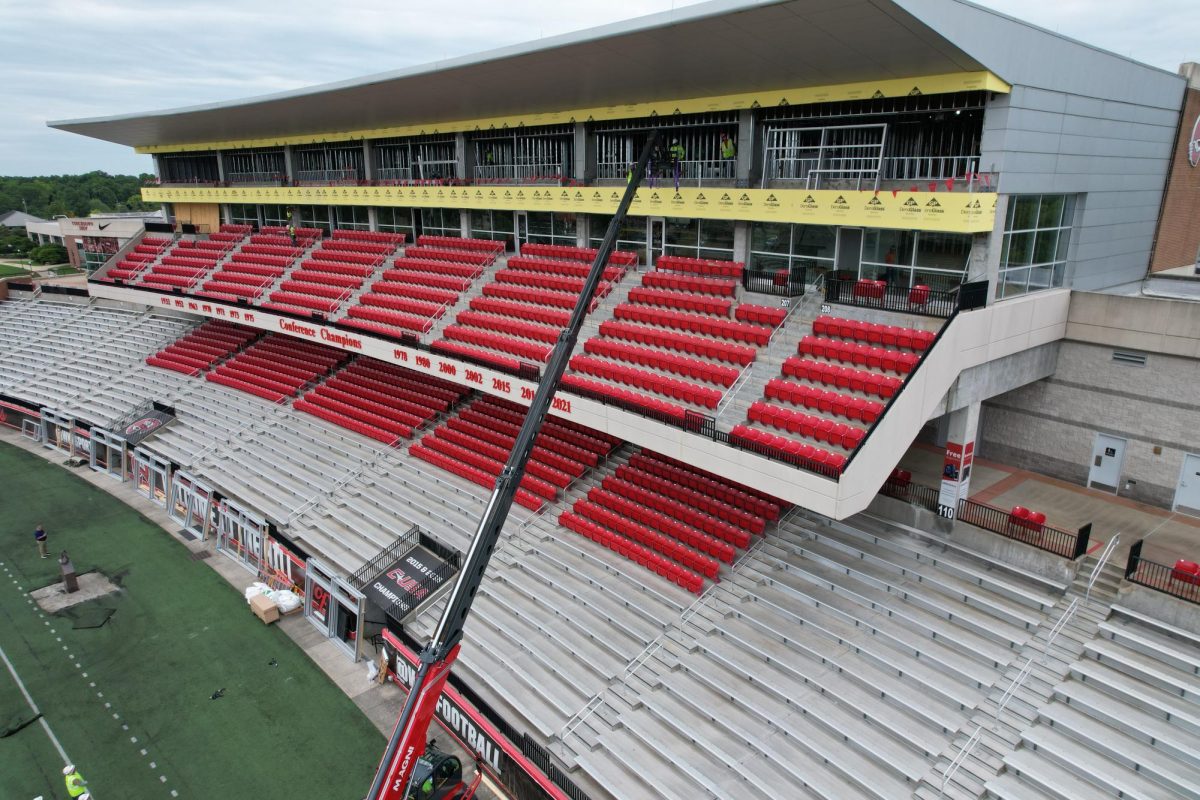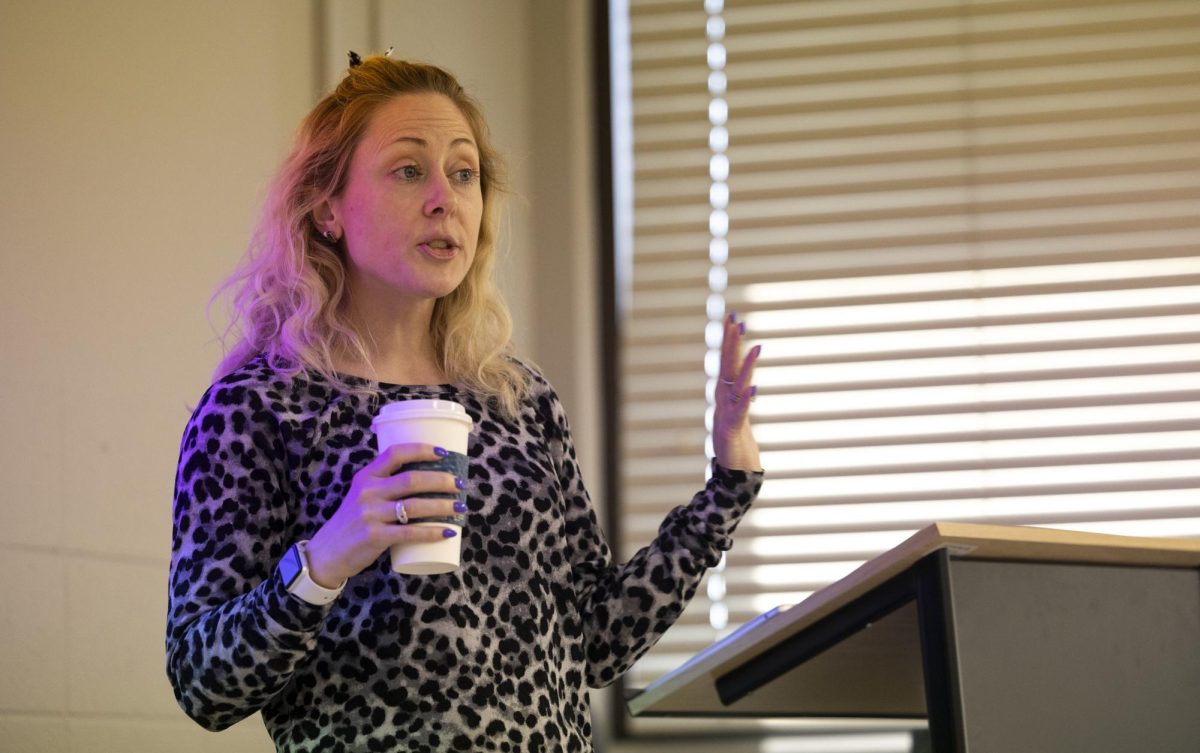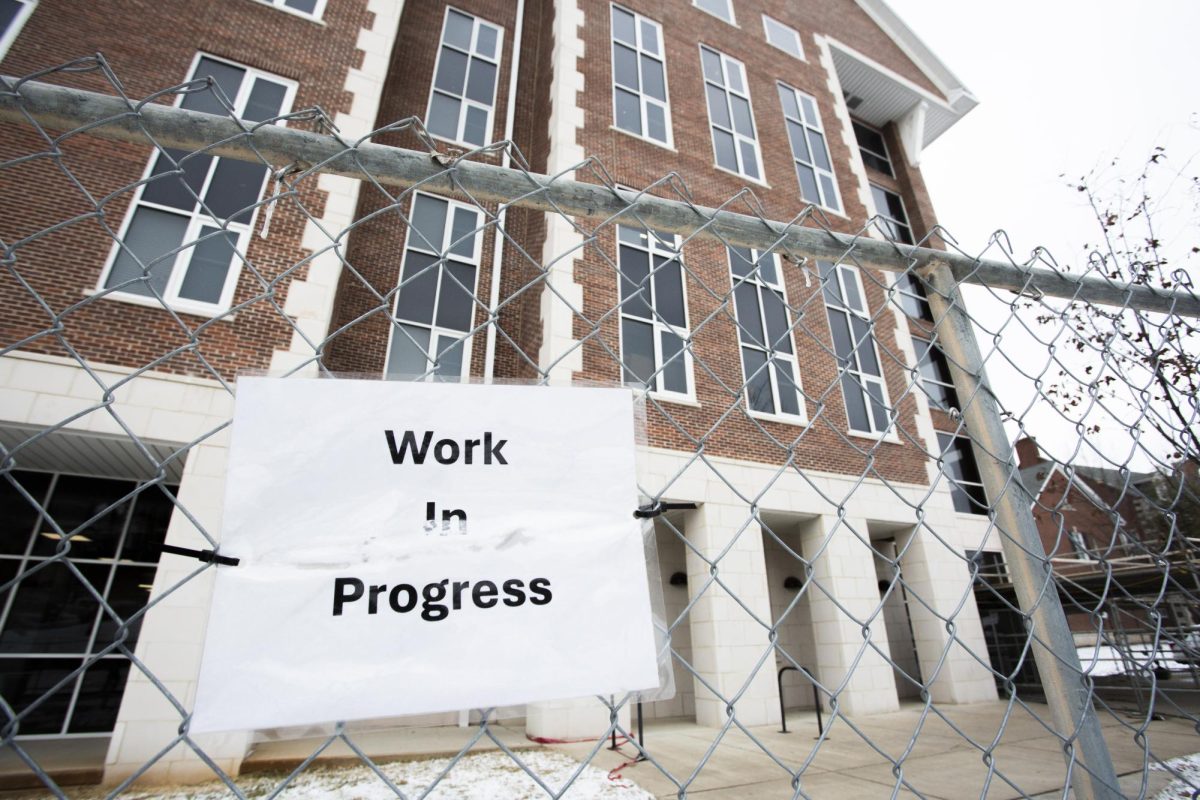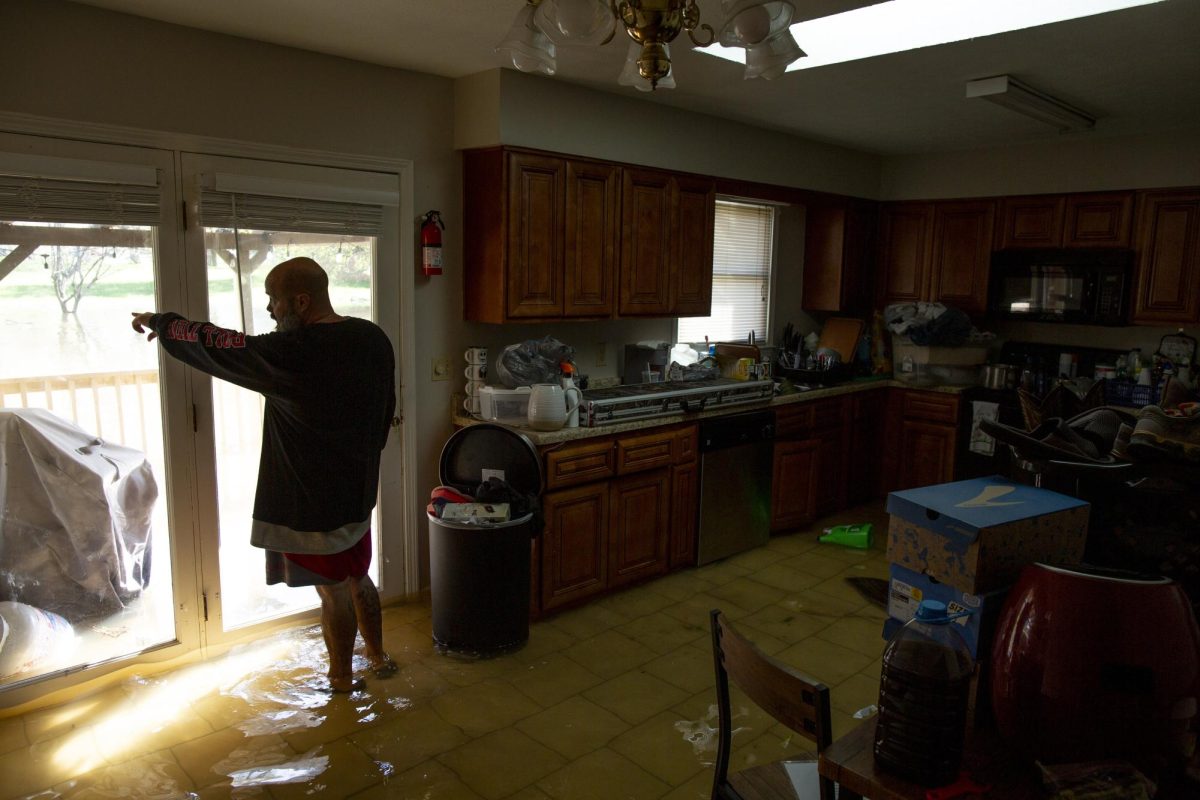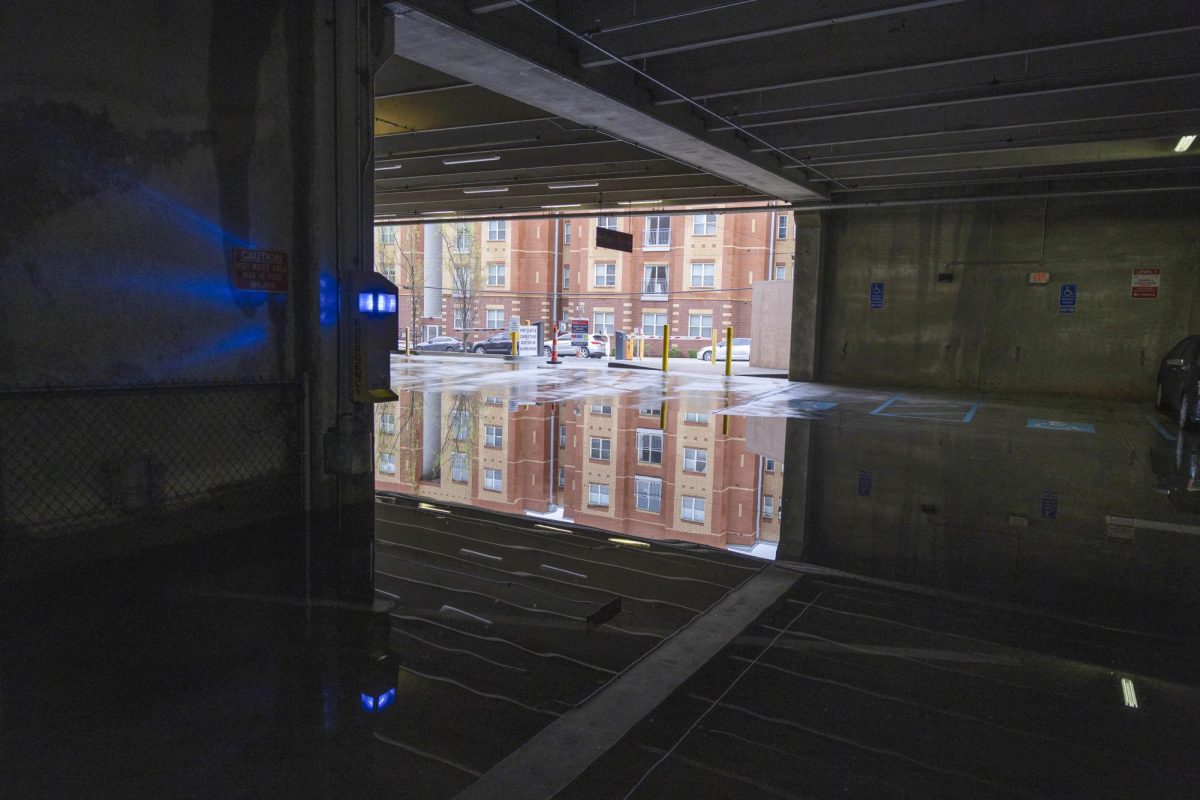As summer is underway, so are several WKU facility projects, including the remodeling of the Houchens Stadium press box as well as upgrading energy management systems for better efficiency.
According to information on WKU’s Planning, Design and Construction website, WKU is working on 11 projects for this summer:
- Elevator replacements in the Service Supply Building, Academic Complex and EST.
- Roof repairs for Diddle Arena, Wetherby Administration Building and EBS.
- Steam-line repairs along Avenue of Champions.
- Construction of the new Gordon Ford College of Business and Hilltopper Fieldhouse.
- 12470v high voltage upgrades at the bottom of the hill surrounding PFT.
- Remodeling of the Houchens Stadium press box
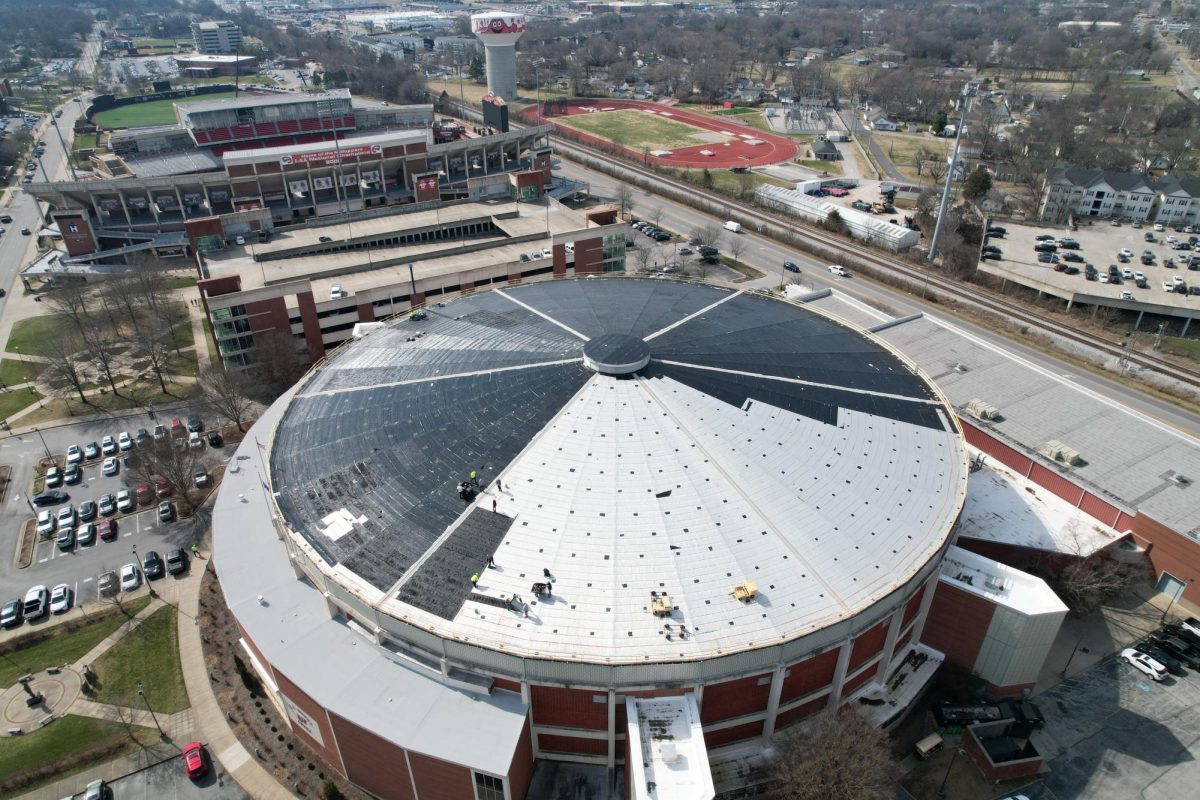
Like many of the projects, Russell said, the need for a full renovation or replacement can be decades old. The original press box was built over 50 years ago in 1968. Some of the issues it had, Russell said, included difficult access, a lack of handicap accessibility, and few modern amenities.
According to information shared by WKU last fall, changes to the press include:
- Be constructed within the stadium as a new floor level above the existing Harbaugh Club.
- Include updated media and press facilities for better broadcasts.
- Provide “state-of-the-art” coaching facilities.
- House multiple suits for premium viewing.
One of the most difficult things about this project was the schedule,” Russell explained, “we could not start the construction until after the football season which ended late November 2023.”
The Houchens Stadium press box is one that faces a hard deadline of Sep. 7, the first home football game of the season against EKU.
Other than the press box, WKU has about 60 current and upcoming facilities projects, past this summer, with a projected scope of over $63 million, according to documents provided by Bryan Russell, chief facilities officer.
The current project list is a partial list that contains only projects that have been approved/eligible for state reimbursement, Russell said. “We’ve got a lot more to do,” he said.
To date, WKU has been reimbursed about $6 million from the state.
“The important thing about how this funding is being made available to the university,” Russell explained in an email on Wednesday, “is that the university must first spend the money, then ask for reimbursement.”
In the 2022-2024 Budget of the Commonwealth (22 RS, HB 1), the Kentucky General Assembly authorized $683.5 million in general fund-supported bond funds for the Postsecondary Education Asset Preservation (AP) Pool. The AP pool provides funding for “asset preservation, renovation, and maintenance projects at Kentucky public postsecondary institutions,” according to the 2022-24 Asset Preservation Pool Guidelines.
Within this AP pool, WKU was allotted $68,080,000 for fiscal years 2022-2024. The new state budget for the next few years will be going into effect on July 1, according to Russell.
“WKU’s Asset Preservation Pool Allocation totals $68,080,000,” Russell said, “and for WKU to receive these funds, we must match, provide a total amount of $10,212,000.”
Russell says the university is appreciative of the help from the state.
“These funds are critical to WKU in that they are allowing us to systematically address many deferred maintenance needs of the university, such as roofing, HVAC systems, interior finishes,” Russell said in an email on May 21.
Another project that Russell said is important, as energy costs continue to increase, is the Metasys N2 to BACNET conversion.
Metasys N2 and BACNET, Russell explained, are hardware “black boxes” and cables. By upgrading from the older N2 (which the university currently uses) to the newer BACNET models, more information can travel faster between building devices. According to Russell, the current N2 model that the university is run on is becoming obsolete.
“As with most technology, devices must be upgraded,” Russell said. “When a ‘head unit’ goes out, we lose control of the building systems operation.
“The system no longer is operating on a designed program but locked into whatever setting the system was operating on at the time of failure. If the building was heating, the heat would remain on with no setbacks or optimization.”
Better optimization when it comes to managing heat/cooling, Russell added, reduces energy consumption. And when energy consumption is reduced, costs are also reduced.
Metasys N2 to BACNET conversions in the Academic Complex, Weatherby Administration Building and South Campus are expected to be completed by the end of October this year.
News reporter Cameron Shaw can be reached at cameron.shaw555@topper.wku.edu.



